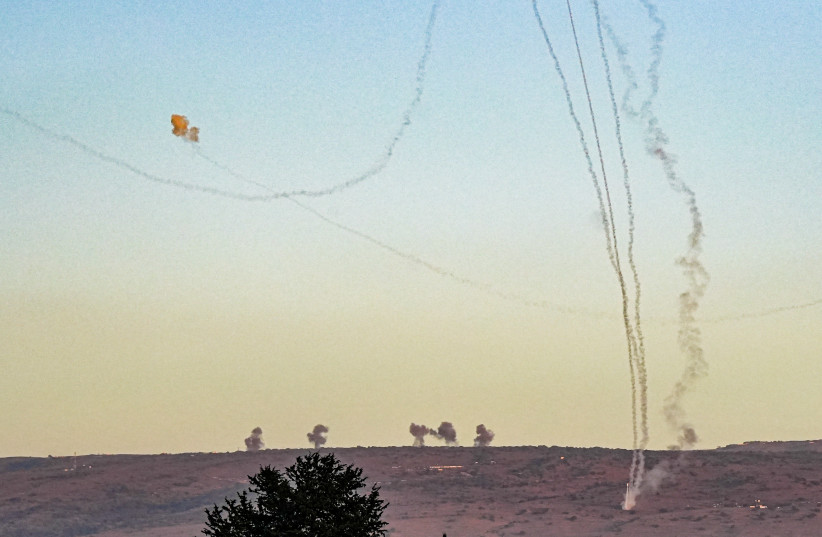Iran wants a ‘perfect storm’ to threaten Israel with proxies
Iran has sought to increase the use of terrorist proxies to attack Israel in the wake of the Rafah offensive. However, Iran’s proxies have so far not been very successful. Several drones were launched by pro-Iranian militias in Iraq, for instance. In addition Iran continues to use the Houthis in Yemen to attack ships.
Overall, the Iraqi militias attacks generally involve the launch of singular drones and although the drones could do damage if they impacted something, they usually fail to get to Israel or are intercepted.
At the same time the Houthis face off against US naval forces in the Red Sea. According to US Central Command, on May 6 “Iranian-backed Houthi terrorists launched three uncrewed aerial systems (UAS) over the Gulf of Aden from Houthi controlled areas in Yemen.
A coalition ship successfully engaged one UAS, US Central Command (USCENTCOM) forces successfully engaged the second UAS, and the final UAS crashed in the Gulf of Aden. There were no injuries or damages reported by US, coalition, or merchant vessels.” Then on May 7 the Houthis launched a ballistic missile into the Gulf of Aden.
Threats from multiple fronts
Pro-Iranian media had suggested that if Israel went into Rafah, this would create a “perfect storm” and Israel would face threats from multiple fronts. So far the threats have not materialized the way Iran envisioned them. For instance, Hezbollah did increase attacks between May 5 and 8, launching dozens of rockets. At 11am on May 8 Hezbollah targeted areas in the Galilee.

Then, half an hour later, it targeted areas near Shlomi, not far from Nahariya. These are areas Hezbollah has often targeted. Hezbollah is thus using the same playbook. The major deviation were a series of drone attacks by Hezbollah on May 6 and May 7. Hezbollah’s attacks killed two IDF soldiers on Monday.
This is a serious escalation. However, Hezbollah appeared to climb down from more escalation on May 8. Hezbollah appears to prefer the kind of proportional attacks that it has carried out for seven months, destroying Israeli communities in the north, but not yet leading to a wider war.
Iran’s goal of escalation amid the Rafah offensive has therefore not come to the fruition that Iran wanted. It remains to be seen if Iran and its proxies will increase their attacks over the weekend.





Comments are closed.